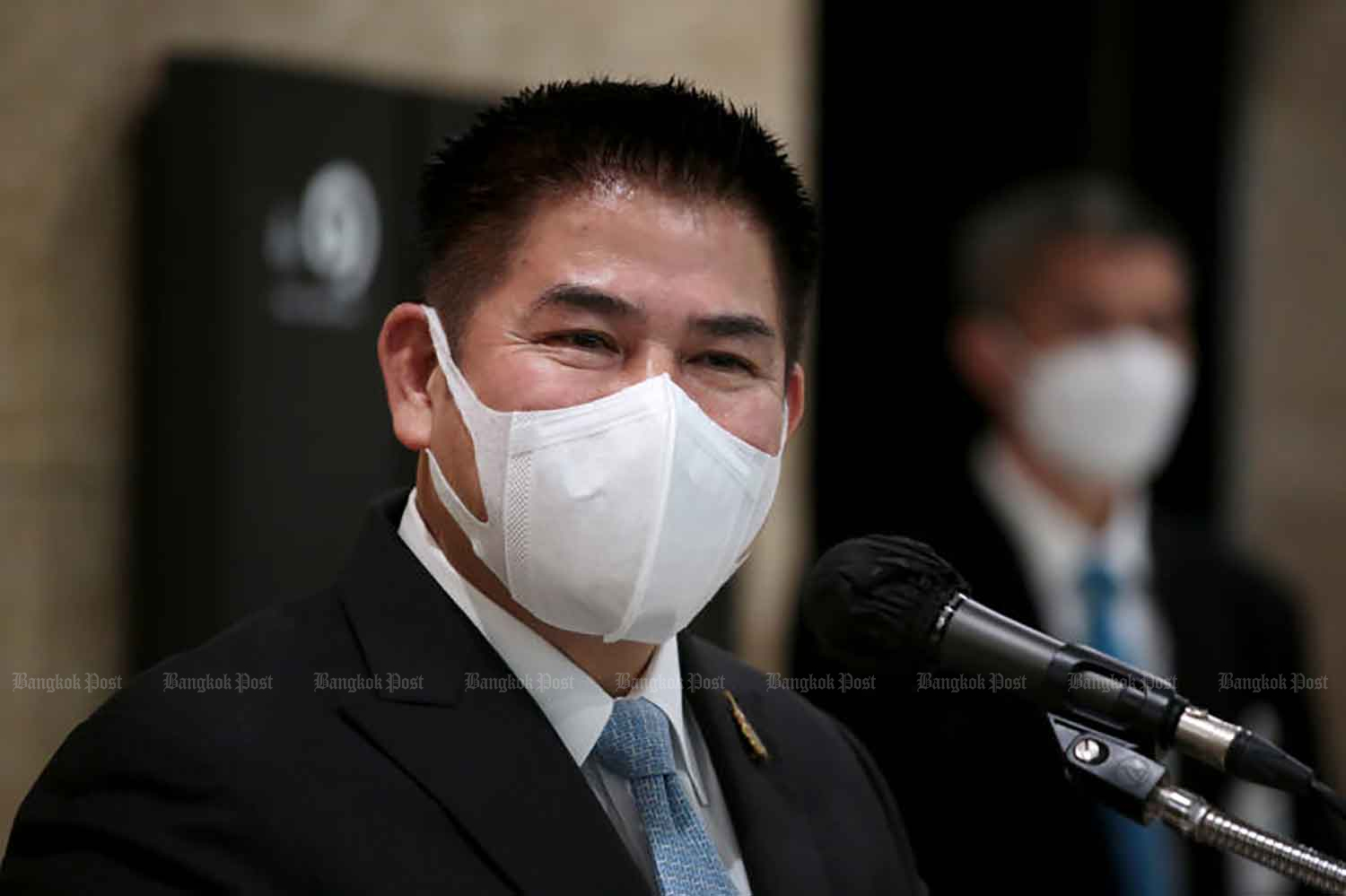
Former Setthakij Thai secretary-general, Captain Thamanat Prompow, says he has the support of more than 40 MPs from various parties who will play a crucial role in an upcoming no-confidence debate.
They include 16 Setthakij Thai MPs, while the others come from the so-called "Group of 16" drawn from micro-parties and Palang Pracharath Party (PPRP) members, he said.
"I can confirm there will be more support than just the sixteen Setthakij Thai MPs. So, some cabinet ministers must be careful," he said.
On Tuesday, Gen Wit Devahastin na Ayudhya stepped down as leader of Setthakij Thai after 15 executives led by Capt Thamanat resigned en masse in what was seen as an attempt to force a leadership change.
Rumours were flying about a split between Gen Wit and Capt Thamanat, who is known to be on poor terms with Gen Prayut and who may not support the government in the no-confidence debate expected next month.
Both Gen Wit and Capt Thamanat are known to be close to Deputy Prime Minister and PPRP leader Prawit Wongsuwon.
It was reported that Capt Thamanat wanted to lead Setthakij Thai when his faction was ousted from the PPRP but bowed to Gen Prawit's choice of Gen Wit.
If Capt Thamanat is elected Setthakij Thai leader in a party meeting early next month and gains total control of the party, members might vote against Gen Prayut in the no-confidence debate. This time there might be enough censure votes to topple the prime minister, according to observers.
Peerawit Ruengluedollapak, a Thai Rak Tham Party list-MP, said small-party representatives from the "Group of 16'' met on Wednesday to discuss the way forward.
They agreed to adopt a similar voting stance, he said, adding that if cabinet ministers cannot explain themselves during the no-confidence debate, the small parties cannot afford to vote for them.
Mr Peerawit also insisted that the bond between the micro-parties and Capt Thamanat remains unbreakable.
He said the censure debate will focus on the controversial bidding for the main water transmission pipeline system for the Eastern Economic Corridor (EEC). But before the debate, all eyes will be on the first reading of the 2023 budget bill scheduled for May 31-June 2 because if it is rejected, the government has to either resign or dissolve the House.
"We [micro-parties] are confident we can gather enough votes to support the opposition camp to bring the government down," Mr Peerawit said.







